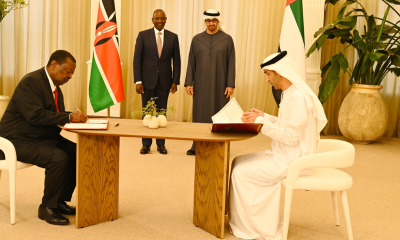For Ugandans Maureen Agena and Edward Echwalu, a five-month trip through 12 countries gave an insight into how western tourists still dominate travel in Africa. But they hope to inspire other black Africans to follow in their footsteps.
When the couple reached the Lesotho border, the immigration officer did a double-take. The pair had caught the officer by surprise, who said: “I’ve been at this post for eight years and no Ugandan has ever crossed through.”
That has been the comment in most of the places the duo went to on their journey. Compared with Europeans and North Americans, it’s relatively hard for Africans to travel the continent as high costs and visa restrictions still cause innumerable troubles.
Nevertheless, just like Agena and Echwalu, a limited but increasing number of Africans are now choosing to go on business or longer-term leisure travel within the continent. And the number is likely to increase in the coming years as well.
Not A Smooth Sail All The Way
The couple, who describe themselves as lower-middle class, took years to save the nearly $25,400 required for the 22,000 km trip through 12 countries: Angola, Mozambique, Tanzania, Botswana, Lesotho, Zambia, Namibia, South Africa, Swaziland, Malawi, Kenya, and Zimbabwe.
They embarked on their journey in December 2022, finding their way around using iOverlander – a mobile application that features routes and amenities, including hotels, campsites, restaurants, petrol stations and hospitals.
It wasn’t a smooth sail all the way. There were hiccups, such as driving along several rough, unlit roads, spending weathered damp nights in a tent, talking themselves past corrupt police at checkpoints, or spending nights at border points due to unexplained delays.
‘Black Tax Is Real’
Leisure and safari tourism in Africa is still dominated by western tourists. Several people the Ugandan couple met on their way found it so difficult to believe they were able to tour without ‘a purpose’. “We told them we just wanted to travel … but they would insist: ‘but why?'”
ALSO READ: Renewable energy an invaluable common ground for EU-Gulf cooperation
At some point, it became difficult for Agena and Echwalu to answer because they could understand the people, the couple said. They highlighted the “black tax” means people would likely commit finances to other priorities over long-term leisure travel.
‘Black tax’ refers to the financial burden shouldered by more successful Africans who address the basic necessities of their immediate and extended families. “The tax is real and it’s entered every DNA, every homestead on this continent,” Echwalu stressed.


















